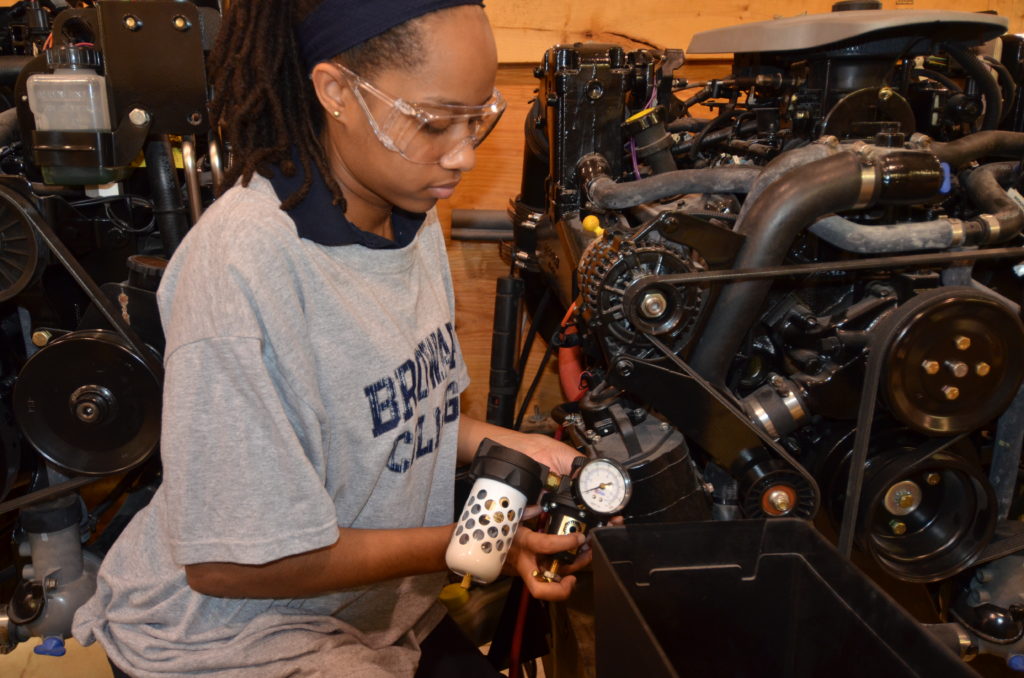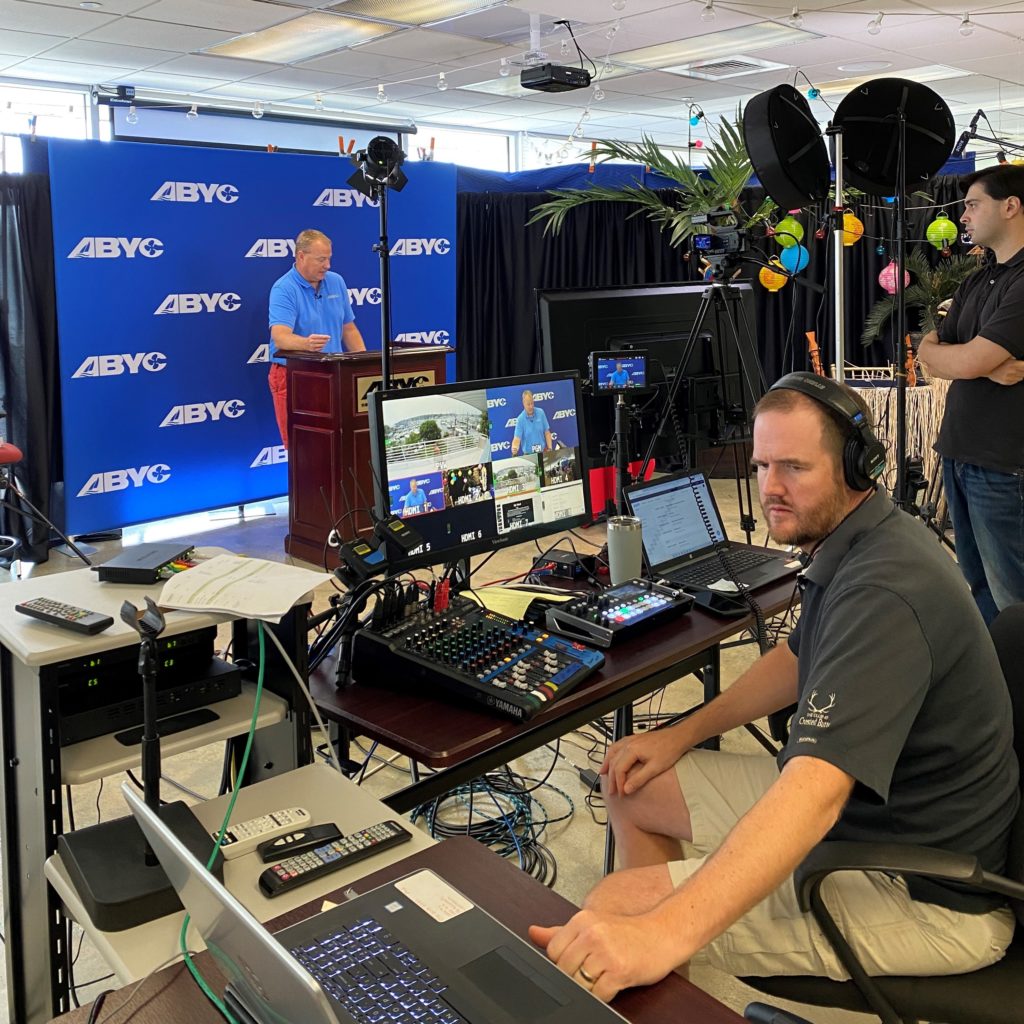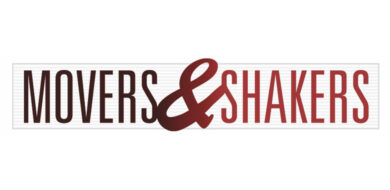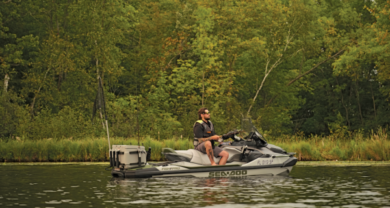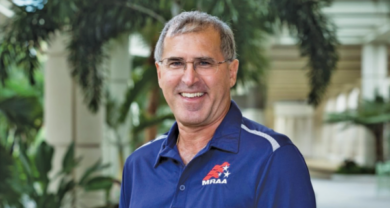Workforce Development: How can the industry help?
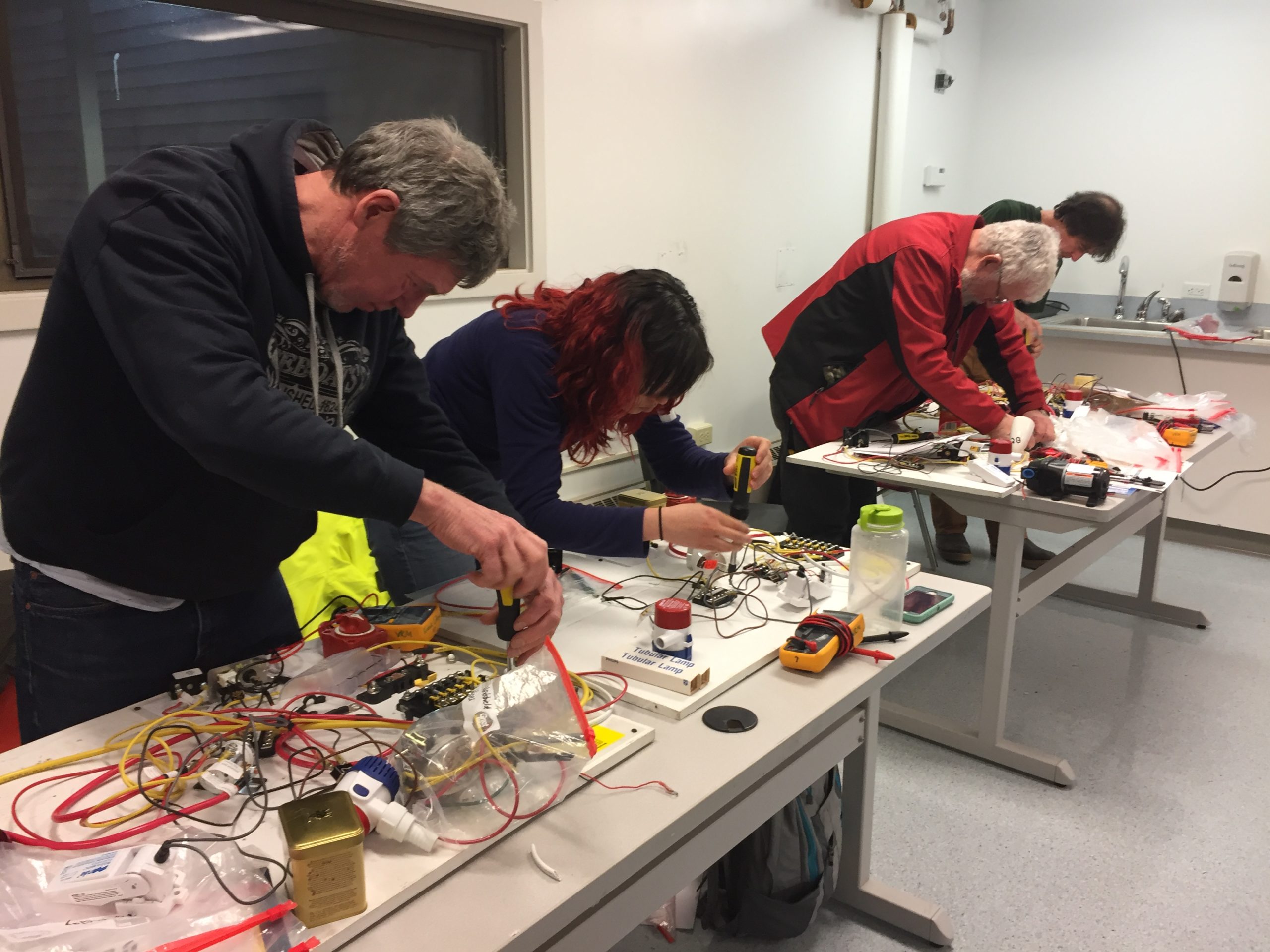
By Sarah Devlin
Content Director, American Boat & Yacht Council (ABYC)
Following up on “Workforce Development: What’s Available” (July issue of Boating Industry), we explore how the industry can support workforce development. This is the final in a three-part series, based on a survey this magazine conducted in the spring of 2021.
Neil Collins was an auto mechanic in Maine for years. Then he bought a boat. “I learned [marine] systems by doing the refit on a boat we took on an over two-year-long sailing trip,” Collins stated. “I worked on repairs and a few projects while we were cruising.” Upon his return, a local yard manager hired Collins as a technician. “My first job, I had a strong mentor whose work I admired completely. He knew me previously because I kept his Triumph motorcycle running.”
This marine-industry mentor allowed Collins the space to develop into a strong member of the team. “I learned about every aspect of things,” he said. “I was invested in business development and given responsibility knowing my manager had my back…[he] gave me lots of opportunity.”
Now Collins operates a marina and yard with 115 slips, 82 moorings, and multiple shoreside amenities including a ship’s store, fuel dock, pumpout station, laundromat, and full-time dock staff, as well as a rigging shop, prop/shaft/hull/engine repair, a full machine shop, and ABYC-certified technicians on staff.
Collins answers one question that comes up frequently when talking about finding experienced marine technicians. What is a reason the marine industry might lose skilled workers to the auto industry?
“In a car, every single starter relay is in the exact same place. That’s never the case with boats,” he asserted. “With boats it’s much more of a challenge. I like that challenge. Every car is the same. If that appeals to you, this job may not be for you… I find people who are handy and committed. It takes a particular person to do a marine system job.”
That attitude, and his experience with his first mentor, provided him the foundation to build his current work environment, which focuses on developing a strong team culture and an openness to industry training. As a manager, he gladly offers training and certification to his employees. “I want to know they are good at diagnosing and fixing problems,” he stated.
As a hands-on manager, he seeks out members of his team who show aptitude and he gets them the training they need to advance, such as training a dockmaster as a systems installer. He describes himself as a “lateral manager,” in that his organization isn’t shaped like a pyramid. “My techs can always find me,” he added. “I don’t berate them if they get something wrong. We figure it out.”
This lateral approach in many ways likely appeals to a younger group of laborers that could start populating the marine industry workforce, and that’s an important note. According to a survey ABYC general members, manufacturers, and surveyors in March 2021, approximately 85% of the 500 respondents were 46 years of age and older. This indicates, according to Steve Kitchin, Vice-President for Corporate Education and Training at the New England Institute of Technology (NEIT), “we have a demographic challenge in terms of the graying of the leadership in the marine industry.”
Matt Jones, the restoration division manager at Diversified Marine Services, agreed. “It’s a different world than it was even 20 years ago,” he stated. “Companies have to evolve with the times to appeal to a new generation of technicians.
“No one is going to get and hang on to new technicians by driving the crew the way it would have been done generations ago,” Jones continued. “People now value flexibility, growth opportunities, reputation, work environment, fun, respect, or fringe benefits above salary. Being happy at their job will keep most of the younger generations invested in the company and wanting to stay, learn, and grow.”
How can the industry engage new workers?
“Do your homework,” Jones stated. “Discover what’s in your local area. Start at the local level. Once they get connected, there are all kinds of things dealers [and repairers] can do to bring awareness to the marine industry,” such as talking to high school classes, starting a Career Day, joining program advisory councils. “We can help the schools understand what needs are out there and we can identify the competencies.”
Margaret Podlich, executive director of the ABYC Foundation pushes the same message in her workforce development discussions with industry, such as the recent Educator Training Conference (ETC) and the upcoming “What Works: Tried and True Ways of Enhancing Your Workforce” at the International Boatbuilders’ Exhibition and Conference (IBEX) in late September. Recently, she stated: “Anyone currently getting a paycheck from boats can help the next generation. Join advisory boards. Hire interns.”
At the ABYC Foundation’s Educator Training Conference this past July, a panel with Joe Maniscalco (Yamaha Corporation), Rob Berenwick (Ocean County Vocational School); and Chelle Travis (SkillsUSA) discussed the benefits of SkillsUSA, an organization that offers employer-driven youth development training and technical job-specific skills to further their career opportunities. With significant support from various industries, these students compete in local, state, and national technical championships. According to their website, the philosophy of the championships is to reward students for excellence, to involve industry in directly evaluating student performance, and to keep training relevant to employers’ needs. The panel’s calls to action were quite evident.
“SkillsUSA is the Super Bowl of our industry for growing technicians,” Maniscalco said. “I spent some time in the marine technologies area of competitions, which was right next to the motorcycles but…you would have thought it was a Harley-Davidson competition and I was really intrigued to understand why.
“It was because Harley-Davidson believed in [SkillsUSA] and they put [money] into it,” Maniscalco continued. “They gave the kitchen sink and the house and everything….They begged me ‘please help, come in, do this. We don’t want this to be just Harley. It should be the entire industry.’”
Maniscalco was motivated. “We realized right away the [marine] industry is not supporting our tech schools,” he said. “A lot of times, it was the strength of the instructor and the staff that really made the program what it was. It wasn’t industry.” He urged people to get involved with SkillsUSA and concluded his message with a mild, joking “threat” to his competitors: “Until [the industry] gets there, it’s going to be as much of a Yamaha competition as SkillsUSA will allow us.”
At the same conference, Kitchin mentioned about 77% of those who answered the ABYC survey referenced earlier in the article had 10 or fewer full-time employees. Nearly 100% of those small shops indicated a need for part-time employees, which according to Kitchin makes for “a wonderful opportunity for some work-based learning experiences…as people go to school, they also have an opportunity to work while they’re in school.” In other words, there are part-time workers at these schools and some of those students are likely to stay over the summer if there is housing nearby.
Podlich wasn’t on the panel, but her message dovetails well. “Help people understand there are year-round jobs in the marine industry,” she said. “And talk to local schools about the monetary impact the industry has on business.”
Kitchin cited from the NMMA worth tracking and using: Recreational boating supports about 700,000 American jobs and about 35,000 American businesses. “The good news is that the retail unit sales of powerboats according to NMMA increased by 12% in 2020 over 2019…meaning the need to service, the need to repair, and the need to work in that world to create the boats that customers want is indeed growing dramatically,” Kitchin stated.
Most importantly, according to Randall Lyons, executive director of the Massachusetts Marine Trade Association, is to collaborate, don’t overcommit yourself, and to sell the industry. “We are very fortunate to work in an industry where the vast majority of our clients enjoy a recreational activity they are happy about. I always say when they’re not happy, they’re waiting for their boats or waiting for something and that’s where the key is for the future of the economic development and working on our workforce.” Talk to your local schools, pay attention to the demographics and needs of your incoming employees, mentor your team, and offer training and certification opportunities such as those provided through ABYC. “I’m glad to send techs out [for training] because it does serve us. When I was a tech, I always learned something I would use later,” Collins said, who acquired his certification in Marine Electrical, Marine Systems, and Diesel Engines while working at his previous job. “I’m committed to making sure my team gets the guidance and training they need.”
How to help:
At the ABYC Foundation’s Educator Training Conference in late July of this year, educators and marine professionals met virtually for seminars and discussions about the need for schools and industry to keep the lines of communication open. According to Randall Lyons, executive director of the Massachusetts Marine Trade Association, during his session “Market Data to Drive Your Program,” here’s what you can do:
- Reach out to local schools. Introduce yourself and your business. Talk about some of the challenges you’ve faced.
- Offer to assist your local schools either from a financial standpoint with a donation if that’s appropriate or with equipment, engines, tools, PPE, or other miscellaneous items.
- Offer to work with one of the schools on an internship program
- Participate in a job fair either in person or remotely. Encourage students to learn more about the recreational boating industry as well as the benefits of working in the industry and for your business specifically. Focus on culture and life balance as these are becoming increasingly important to those entering the workforce.
- Offer to work on a mentorship program.
- Offer to purchase tool gift cars for graduating students.
- Reach out to schools that may be considering a new program or are expanding their current program.

